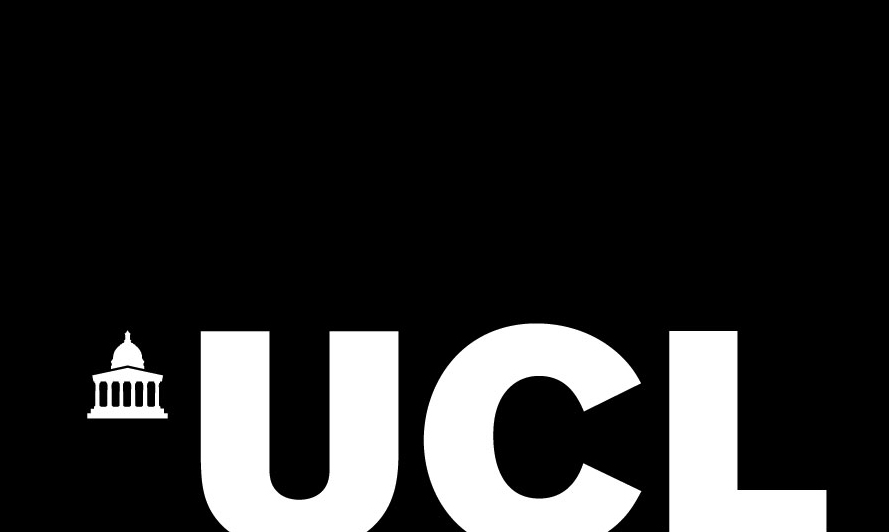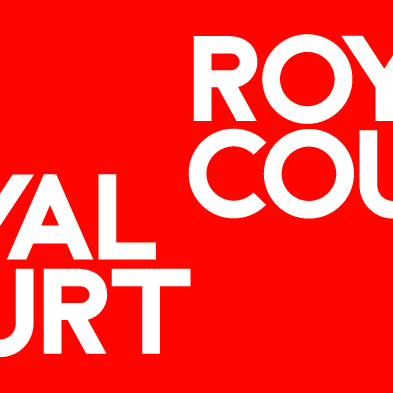Date and Time
29th October 2021
Location
Dartington, Totnes, Devon TQ9 6EG
Sensing the Planet, a 3-day gathering at Dartington from 29-31 October, will see leading UK cultural institutions Serpentine, the Royal Court Theatre, UCL’s Sarah Parker Remond Centre for the study of racism and racialisation and Dartington Trust launch Black Atlantic, a new decolonial arts partnership that aims to strengthen the role of arts and culture in advancing social and climate justice.
Timed to take place just before the intergovernmental climate conference COP26, Sensing the Planet will highlight issues of race and environmental harm as well as the role played by the UK, and of the south-west of England in particular, in histories of slavery, empire and climate breakdown. It will also champion the role of interdisciplinary culture in imagining new futures built on principles of sustainability and justice, bringing together leading decolonial thinkers, artists and activists including headline speakers Paul Gilroy, Ruth Wilson Gilmore, Alexis Pauline Gumbs and Philippe Sands QC.
Confirmed artists include Barby Asante, Forensic Architecture, Ingrid Pollard, Tabita Rezaire, Jason Singh and Zadie Xa. Additionally, activists will attend from collectives including Black Lives Matter UK, Wretched of the Earth, Decolonising the Curriculum, Plane Stupid and Racial Justice Network. A group of 4 writers brought together by the Royal Court Theatre will also attend and there will be live performances from Shifa, Pat Thomas and Elaine Mitchener.
Visitors and participants will have access to an installation of video interviews between the late Martiniquean theorist and novelist, Edouard Glissant and Serpentine’s Artistic Director Hans Ulrich Obrist, and to a live feed from the Court for Intergenerational Climate Crimes [CICC] in Amsterdam – a project by writer, academic, lawyer and activist Radha D’Souza and artist Jonas Staal, produced by Framer Framed, in which the CICC will hold hearings against Unilever, ING, Airbus and the Dutch State.
Following the event, interdisciplinary artists will be invited to participate in a public seminar reflecting on key learnings. This will be held in London, later in the year. Details to be announced.
The programme is spearheaded by filmmaker and activist Ashish Ghadiali and Serpentine curators Amal Khalaf and Lucia Pietroiusti. Additional support comes from advisor Paul Gilroy, Director of UCL’s Sarah Parker Remond Centre for the study of racism and racialisation, and partners Cafe OTO/OTO Projects, LUMA Arles, Verso, Lawrence & Wishart Books and the Stuart Hall Foundation.
Tickets cost £100 for the weekend non residential and £276 residential. Alternatively individual sessions, gigs, films and workshops can be booked separately online at dartington.org
This is an independent event produced by Black Atlantic. The Stuart Hall Foundation has partnered with Black Atlantic to help promote the Sensing the Planet symposium.
“Today’s ecological crisis is rooted in our histories of slavery and empire. Facing up to those histories, understanding the way they live on and recognising the primacy of the imagination, of art and activism, in creating new and better futures are activities as crucial in the work of reversing global warming as the net zero initiatives that will dominate the mainstream climate conversation at COP26. The imaginative space that we’re cultivating through Sensing the Planet may emerge, at a similar time, as the more relevant crucible for the kind of social transformation that we need.”
Ashish Ghadiali, Activist-in-Residence at UCL’s SPRC and a Curator at Dartington Trust:
“The changes we need, to deal with white supremacy and ongoing environmental collapse, are bigger than the current structures, movements and silos we work within. Sensing the Planet is an opportunity for transformative relationship building across disciplines. The gathering will be a space where activists, organisers, artists and writers can share visions and praxis, to build friendships, and to collectively imagine and embody the world we want and need right now.”
Amal Khalaf, Civic Curator at Serpentine and Director of Programmes at Cubitt:
“We are so grateful to Black Atlantic to be able to offer 4 writers the opportunity to participate in this vital gathering. The intersection of the climate crisis and the legacy of empire is territory that so many of our writers are thinking deeply about. The opportunity to think spaciously alongside other artists is the imaginative work that can make transformative change happen. We are ready to respond to the conversations and provocations that emerge and look forward to taking action together.”
Vicky Featherstone, Artistic Director and Lucy Davis, Executive Producer of the Royal Court Theatre
“I see this initiative as an important opportunity to develop a revised understanding of Britain’s modern history in an area of the country that is strongly associated with seafaring and has an extensive record of long-distance trading activities that for many years included trafficking in enslaved people. This exciting initiative is a welcome chance to augment discussion of these neglected historical chapters as well as to re-assess the various consequences of slave trading for the economic, institutional and cultural life of the South West.”
Paul Gilroy, Director of UCL’s Sarah Parker Remond Centre for the Study of Racism and Racialisation
“Black Atlantic is a major initiative for the Trust and a vital part of us examining our past and present, hosting programmes and events addressing major societal issues of prejudice, racism, inequality and inequity”.
Alan Boldon, CEO of Dartington Trust
Bettina Korek, CEO, and Hans Ulrich Obrist, Artistic Director, Serpentine
“Serpentine aims to look beyond disciplinary borders to bridge fields and reach new perspectives on some of the most complex challenges of our time. We are delighted to be working with organisations that share our goals to produce Sensing the Planet, highlighting the crucial role played by art and culture in imagining different and just futures grounded in equity and inclusion.”
END”
For further information, interviews and images, please contact:
Rose Dempsey, rosed@serpentinegalleries.org / +44 (0) 7876 593758
Laura Gosney, laurag@serpentinegalleries.org
Agnes Finlayson, agnes.finlayson@dartington.org / +44 (0) 7960 110 133
Jane Bolger, j.bolger@ucl.ac.uk / +44 (0)20 3108 9040 /+44 (0)7713 261 477
Anoushka Warden, anoushkaWarden@royalcourttheatre.com
_

Championing new ideas in contemporary art since 1970, the Serpentine has presented pioneering exhibitions for half a century from a wide range of emerging practitioners to the most internationally recognised artists of our time.
Across two sites only 5 minutes apart, in London’s Kensington Gardens, the Serpentine presents a year-round, free programme of exhibitions, architecture, education, live events and technological innovation, in the park and beyond.
Proud to maintain free access for all visitors, thanks to its unique location the Serpentine also reaches an exceptionally broad audience and maintains a deep connection with its local community.

The Dartington Experiment began in 1925, when wealthy pioneers and visionary thinkers Dorothy and Leonard Elmhirst bought a crumbling estate and began to explore how a place could change the world. They attracted some of the greatest artists, educators and political philosophers of the 20th century in the process. The community this created was the catalyst for important British institutions – including the NHS and Arts Council – and ground-breaking experiments in education, social policy, farming and land use.
Dartington Trust endures/lives on as a centre for progressive learning, arts, ecology and social justice, based on a 1,200 acre site near Totnes, in Devon. Throughout its history Dartington has drawn leading artists and thinkers including Bernard Leach, composer Igor Stravinsky, cellist Jacqueline du Pre, musician Ravi Shankar, playwright Bernard Shaw, environmental activist Vandana Shiva, social activist and politician Michael Young and writer Aldous Huxley.
The Trust works locally, nationally and internationally with pioneering thinkers, teachers, artists and social entrepreneurs to achieve change in three crucial areas: the arts, the promotion of a fairer society and the future of our planet.
The many elements of the Trust today include: Schumacher College, Dartington Arts School and Research in Practice. It is a social-enterprise hub for like-minded organisations and charities, a place for nature with range of conservation, agroforestry and sustainable food-growing projects, a creative community with a year-round programme of art and craft short courses, theatre, music and dance events as well the independent Barn Cinema plus the Dartington Summer School & Festival which has been running since 1953. The estate is also a destination with Grade II* listed gardens, woodland walks, riverside trails, cafés, and restaurants and family-friendly activities.

UCL is a diverse community with the freedom to challenge and think differently.
Our community of more than 41,500 students from 150 countries and over 12,500 staff pursues academic excellence, breaks boundaries and makes a positive impact on real world problems.
We are consistently ranked among the top 10 universities in the world and are one of only a handful of institutions rated as having the strongest academic reputation and the broadest research impact.
We have a progressive and integrated approach to our teaching and research – championing innovation, creativity and cross-disciplinary working. We teach our students how to think, not what to think, and see them as partners, collaborators and contributors.
For almost 200 years, we are proud to have opened higher education to students from a wide range of backgrounds and to change the way we create and share knowledge.
We were the first in England to welcome women to university education and that courageous attitude and disruptive spirit is still alive today. We are UCL.

The Royal Court Theatre in London is the writers’ theatre. It is a leading force in world theatre for cultivating and supporting writers – undiscovered, emerging and established.
Through the writers, the Royal Court is at the forefront of creating restless, alert, provocative theatre about now. The theatre opens its doors to the unheard voices and free thinkers that, through their writing, change our way of seeing.
Over 120,000 people visit the Royal Court in Sloane Square, London, each year and many thousands more see the work elsewhere through transfers to the West End and New York, UK and international tours, digital platforms, our residencies across London, and our site-specific work. Through all the work the Royal Court strive to inspire audiences and influence future writers with radical thinking and provocative discussion. The Royal Court’s extensive development activity encompasses a diverse range of writers and artists and includes an ongoing programme of writers’ attachments, readings, workshops and playwriting groups.
Twenty years of the International Department’s pioneering work around the world means the Royal Court has relationships with writers on every continent.
Since 1956 the theatre has commissioned and produced hundreds of writers, from John Osborne to Jasmine Lee-Jones. Royal Court plays from every decade are now performed on stage and taught in classrooms and universities across the globe.
The Royal Court is now working to the future and are committed to becoming a carbon net zero arts venue to ensure the work can continue for generations of writers and audiences to come.
Share this